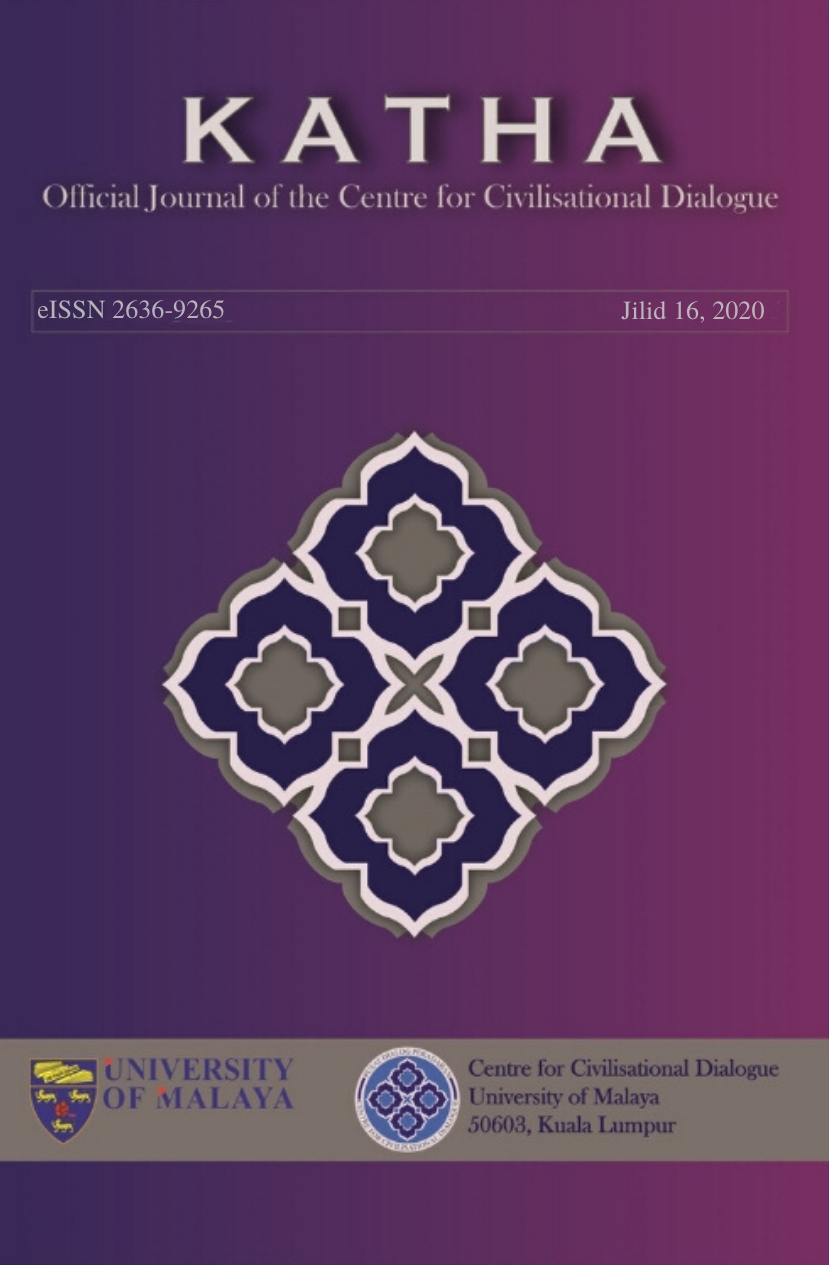Interpretation and Views of Quranic Commentaries on Peace Based on Al-SalÄm and Al-Amn Terms
DOI:
https://doi.org/10.22452/KATHA.vol16no1.3Keywords:
Peace, Stability, Qur'an, al-SalÄm, al-Amn, Quranic CommentariesAbstract
Peace is a very important topic for discussion in a world of war, chaos and insecurity. Islam is a religion that prioritises peace and rejects all forms of violence. The term “peace” is repeated often in the Qur’an, in phrases such as al-salām and al-amn, with meanings of peace, security and harmony. This study seeks to identify phrases in the Qur’an relating to peace and to present the views of quranic commentaries (mufasirin) regarding these phrases. The methodology applied in this study is based on data compiled from library research by using deductive and analysis methods. The study shows that among the terminologies used in reference to the meaning of peace are al-salām and al-amn which have been certified by the Quranic commentaries in their books. Indirectly, through Quranic verses it shows that element of peace is one of the messages brought by Islam.
Downloads
Downloads
Published
How to Cite
Issue
Section
License
Copyright (c) 2020 KATHA- The Official Journal of the Centre for Civilisational Dialogue

This work is licensed under a Creative Commons Attribution-NoDerivatives 4.0 International License.
Articles submitted to the journal should not have been published before in their current or substantially similar form, or be under consideration for publication elsewhere. Authors submitting articles for publication warrant that the work is not an infringement of any existing copyright and will indemnify the publisher against any breach of such warranty. For ease of dissemination and to ensure proper policing of use, papers and contributions become the legal copyright of the publisher unless otherwise agreed. By submitting a manuscript, the author(s) agree that copyright for the article is transferred to the publisher, if and when the manuscript is accepted for publication. However, it can be reprinted with a proper acknowledgment that it was published in KATHA.

This work is licensed under a Creative Commons Attribution-NonCommercial-NoDerivatives 4.0 International License.




